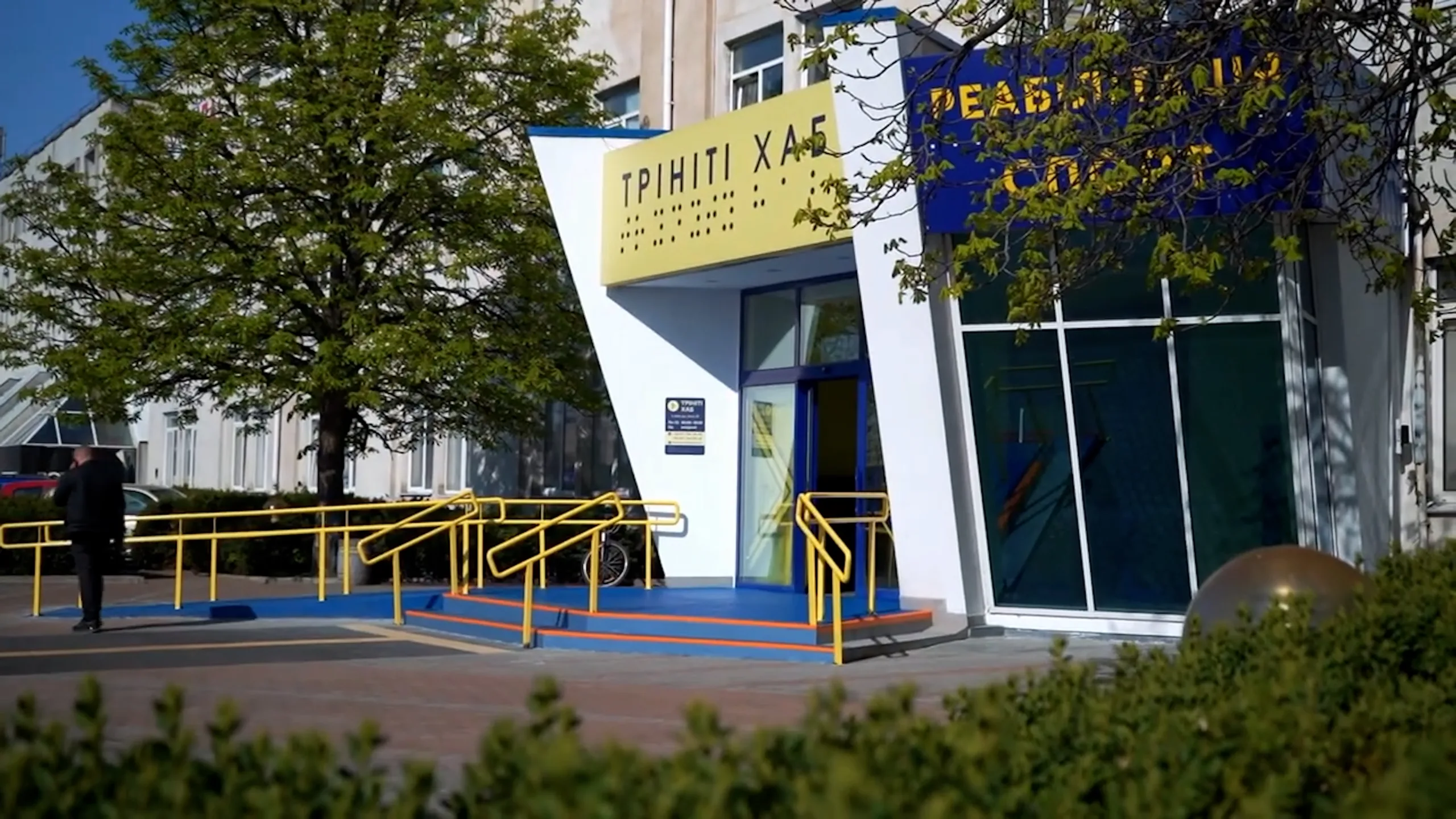A year and a half ago, Trinity Hub, the first rehabilitation and adaptation centre for visually impaired people in Ukraine, was opened in Kyiv. Children and adults, civilians and veterans learn and master new skills here. The HMH team visited the hub and prepared a report about its work.
How the space is arranged
At 10am, the hub is already crowded – group classes for veterans have started, which take place every Tuesday and Thursday. Individual lessons are held at the same time.
Antonii, an orientation and mobility instructor, meets us and gives us a short tour:
‘The interior of the Trinity Hub is designed with contrast so that people with partial sight can find their way around. The corridors have handrails with Braille signs. The space is also accessible for people in wheelchairs: there is a gentle ramp, sliding doors, and all rooms are spacious and without thresholds.’
An instructor who knows what it’s like to lose your sight
Yaroslav is the only orienteering instructor in Ukraine who has lost his sight. Now he helps others to adapt:
‘When a person comes to us, we conduct a diagnosis: how long ago they lost their sight, for what reason, their psychological state, their motivation. We always start with indoor orientation and gradually expand the geography of the routes. If a person wants to, he or she will succeed.’
Read also: Ukrainian experience in the centre of Europe: how war transforms civilian security
Returning to life
Pavlo, a veteran, has been undergoing rehabilitation at the hub for over six months. He lost part of his right arm, fingers and eyesight as a result of a mine explosion.
Now Pavlo attends dance therapy, psychological sessions, and learns to use a telephone and computer with voice activation. He admits that he did not like dancing before, but the classes at the hub changed his attitude. His wife Svitlana supports him and they even performed a dance with him.
Educational technologies
In the educational technology department, specialist Yelyzaveta teaches Braille reading:
‘The fastest result in my practice is a week. In general, it takes from a week to a month to learn. My youngest student is a 4-year-old boy, and my oldest is an 83-year-old grandfather.’
However, reading Braille books is not a cheap pleasure: one part of such a book can cost from 3000 hryvnias.
A home for rehabilitation
Next to the hub is Trinity House, a special hostel adapted for visually impaired people. Patients from other cities can stay here during their 21-day rehabilitation.
The hostel is especially in demand during projects for veterans. It is equipped in the same style: contrasting interior, Braille signs, and a mnemonic scheme for navigation.
According to Anastasiia, the hub’s chief HR specialist, the main challenge today is a lack of funding. The Trinity Hub exists at the expense of donors, and these funds are only enough for a part of the projects. But despite the difficulties, the team does not stop its important work.
Read also: The humanitarian situation in Ukraine. Shelling, lack of funding and millions of people in need



